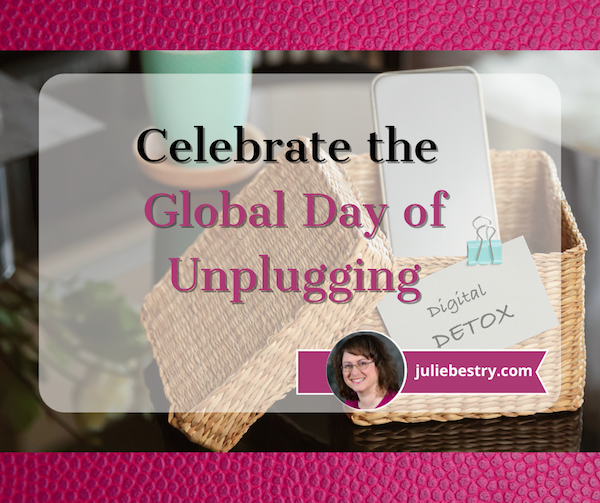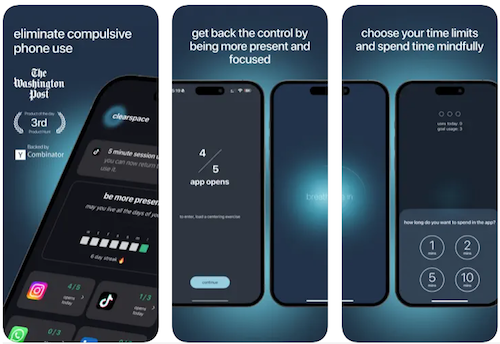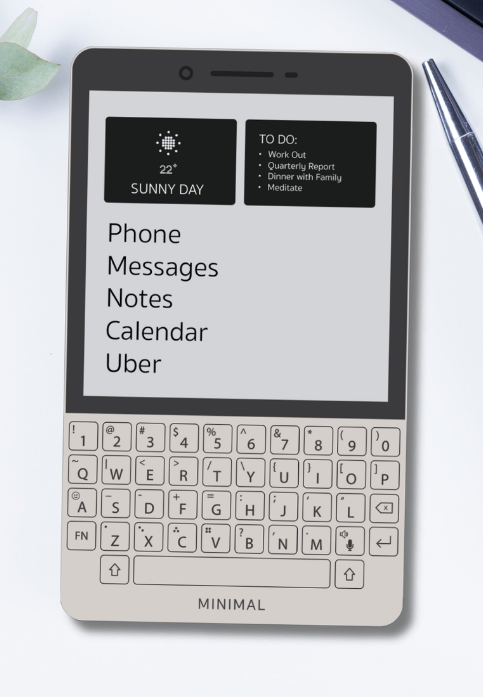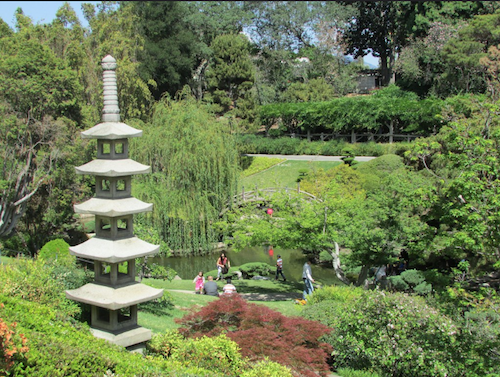Celebrate the Global Day of Unplugging

From the moment you open your eyes in the morning until you finally nod off at night, do you experience over-stimulation? Do you suffer from over-availability, whether to your boss, colleagues, or clients, or to everyone who wants to talk to you about their political campaigns or your auto warranty?
Even if you’re overly connected with the world via glass screens, do you feel a lack of connection — with your loved ones, nature, or even your inner self?
Have I’ve got a holiday for you! From sundown this Friday, March 1, 2024 until sundown on Saturday, it is the Global Day of Unplugging!
WHAT IS THE GLOBAL DAY OF UNPLUGGING?
The Global Day of Unplugging is an annual campaign to bring attention to the importance of taking a break from 21st-century technology, whether that’s your computer, your cell phone, or your brand new Apple Vision Pro. The goal is to embrace person-to-person connection, the kind where you can see deeply into someone else’s eyes because you’re in the same space at the same time.

It’s not that digital engagement is bad, per se. Zoom meetings and remote work means we reduce our overall carbon footprint from work-related road trips and airline travel. Cell phones (even if people mostly communicate by text) let us know when our friends are running late or if the kids need someone to pick them up.
But being on-all-the-time keeps us from ever refreshing. When it’s our boss that keeps us connected, that’s toxic, as we’ve discussed previously:
- Toxic Productivity In the Workplace and What Comes Next
- Toxic Productivity Part 2: How to Change Your Mindset
- Toxic Productivity Part 3: Get Off the To-Do List Hamster Wheel
- Toxic Productivity, Part 4: Find the Flip Side of Productivity Hacks
- Toxic Productivity Part 5: Technology and a Hungry Ghost
I mean, we could move to France, as covered in the first post above, or to Australia, which has just voted to allow workers to ignore after-hours phone calls and email from their companies. That could help reduce any employer-related tethering to our devices.
But we do this same damage to ourselves! Like a digital pacifier, we reach for our devices when we’re bored or anxious: in line at the grocery store, waiting for a doctor’s appointment, on the other end of the couch from our kids or significant other.
Technology is pushed on us from above and from all sides, but it has the potential to become an addiction that pushes us further away from our loved ones.
Wouldn’t you benefit from a little escape? For one 24-hour period starting on Friday, people from all four corners of the globe (yes, I know globes have no corners), will intentionally walk away from their digital lives and meet IRL (in real life).
WHY UNPLUG?
Let’s look at the dangers of the attention economy, which treats our eyeballs (attention) as a scarce commodity. We can prevent some of the problems by decluttering our digital spaces; other parts require concerted efforts at unplugging.
Distractions
Our computers and devices bring so much digital clutter to our attention. Some of it involves what other people want us to pay attention to, things we may or may not find important. But other distractions we bring on ourselves by clicking our way into deeper and deeper rabbit holes, directing us to an article online or a video on TikTok, but then we stay, enraptured and forget what we were doing.
These distractions take our focus off where we intend it to be. Intention is how we make sure we handle what we prioritize and not someone else’s priorities. Decluttering minimizes those distractions.
When we’re organized in our homes or offices, the clutter and inefficient systems make it hard to find what we want when we want it. Digital clutter is more insidious because we don’t even realize that we’re being distracted — we’ve become so used to it, and because nobody else sees our digital clutter they don’t call attention to it.
When we eliminate digital excess and distractions and create new, more efficient pathways, we feel calmer and more in control. When that happens, we’re in the zone, better able to do deep work and get into flow, with less wasted time searching for whatever we want — or what our boss or client wants.
However, of all the ways digital addiction hurts us, perhaps the distractions and lack of productivity are the least important.
Physical Health
Digital overuse is bad for our physical health. We develop bad posture from shlumping at our desks, gripping our phones, and hyperextending our necks.
Tech Neck is an informal term for the medical condition we experience when we use our devices. We flex our necks and shoulders, causing strain strain on the muscles and joints; the more we do it, the greater the build-up of tension, leading to muscle pain and headaches. Some research even suggests that overusing mobile devices can cause bone spurs to form at the nexus between the neck and head!
Additionally, exposure to the blue light emitted by phones, tablets, and computer screens can cause insomnia and decrease the quality of our sleep, which can further impact our ability to focus. Of course, when our attention span is decreased (whether due to sleepless nights or being trained to think in tweet-length chunks of language), it takes ever more effort to interpret complex material or be creative.
And, of course, repeated digital interruptions from our devices leads to higher rates of exhaustion and stress-induced ailments.
Stress
Speaking of stress, staying plugged in messes up our psyches in multiple ways:
- Information overload leads to overwhelm — To borrow a movie title, it can seem like we’re dealing with everything everywhere all at once. Your work, your children’s homework portal, national disasters, politics — it’s all so important.
The problem with everything seeming like a priority is that eventually nothing is a priority. All issues, large and small, compete on a stage the size of the planet, the form of your smartphone, and the synapses in your brain simultaneously.
The problem with everything seeming like a priority is that eventually nothing is a priority. All issues, large and small, compete on a stage the size of the planet, the form of your smartphone, and the synapses in your brain… Click To Tweet- Overwhelm leads to increased anxiety — Think about the last time you were trying to juggle multiple problems at the same time. I bet you were trying to give your attention to so many interested parties that one last, small request (“Honey, where’s the Costco card?” “Mom, can you take me to the mall?”) made you feel like your limbs where going to fly off in different directions.
- Use of social media leads to a variety of emotional dysfunctions. Over the last decade, social media use has grown; in 2022, the average person spent 2 hours and 27 minutes on social media per day. Why is that worrying?
- The more we connect online, the more we experience FOMO (fear of missing out).
- We more see other people having fun (attending parties, going on vacation, celebrating life milestones), the more likely we are to feel lonely.
- Comparing one’s own life to other’s highlight reels can lead to lower levels of self-esteem. If you judge your own self-worth by comparing yourself to others, social media may make you feel like you’re failing.
- As people — particularly younger folks — spend less time developing in-person social interactions and more time on social media and dating apps, there’s an increase in social awkwardness when they finally do meet face-to-face. This contributes to more social anxiety. Additionally, the social relationships we do have tend to fray without positive, in-person interactions.
- Social media makes it easier for people to exhibit bad behavior. Bullied teenagers used to have a respite from their cruel classmates once the school day was over; now, it follows them home on their phones and social gaming sites. And we all know about rude online treatment of anyone who dares to have a differing opinion on anything, whether politics, sports, or music, or has a different religious, national, ethnic, or other kind of identity.
- More nuanced unkindness online occurs in the withholding of likes or social approval, which again, when we compare our “performance” and “appeal” to that of others, can make us feel like we’re lacking.
- All of this can lead to depression.
- We can lose the ability to ability to self-soothe when we’re constantly tethered to our digital pacifiers. On the plus side, our devices can distract us from very real things that, well, suck. But when we become dependent on that kind of distraction, our former life skills dissolve. We used to be able to make polite conversation with strangers in line or read books for extended periods of time. We could go to sleep without an hour of scrolling. Now, we’re often unable to tame our thoughts unless we allow the internet to do it.
WHY IS IT SO HARD TO UNPLUG?
Every app and the whole on the internet is purposely designed to keep you coming back.
There’s a scientific explanation. Every time we use our devices, it reinforces the pathways taken by dopamine, a happy-making neurotransmitter at the base of our reward-seeking behaviors. Just like the bells and blinking lights on a Vegas slot machine condition us to pull the lever or push the buttons one more time, the notifications, “Breaking News” headlines, daily streaks in apps, and aforementioned “likes” draw us back in.
Worse, as with other addictions, when this neurotransmitter pathway doesn’t get reinforced, we actually experience something very similar to a chemical withdrawal. Have you ever found yourself without your phone, feeling jittery and unable to tame your mood?
It’s not your fault. You have to use modern devices for work, and you really do want to have access for many of life’s convenience. But you will feel better if you can lessen your dependence.
HOW TO UNPLUG FOR A DAY
To celebrate the Global Day of Unplugging, you can look for a community event near you. There’s everything from a musical chairs event in Charleston to Yoga and Sound Healing in Gainesville, from a Family Bonfire & S’Mores in Star, Idaho to something called a Disco Get Down-Dog in San Diego. And this truly is global, with events from Denmark to Bolivia, Virginia to Switzerland!
The Global Day of Unplugging organization has listed over 200 ideas of what you can do instead of being plugged in!
The idea isn’t to become a Luddite, but to find ways to feel less isolated or disconnected (whether from others or yourself). Ideas range from the tame (unclutter your pantry, take a hike, do some gardening) to those that indulge your inner child (build a living room fort, blow bubbles, put on a puppet show).
Create art (decorate a lantern, have fun with origami) or go on a quest (create a scavenger hunt or go on a Gnome hunt)! And while I’d be hopeless at crocheting for a cause or going on an ice-block slip & slide, all of these events would definitely be healthier for my brain, heart, and soul than scrolling through the curated slime-fest some platforms have become.
You can also support the global unplugging movement by making a donation or purchasing “merch,” but even joining at the free plan lets you download their “I/We Unplug” signs.
If you enjoy the Global Day of Unplugging, consider taking a tech sabbath as described by Tiffany Shlain in 24/6: Giving up Screens One Day a Week to Get More Time, Creativity, and Connection or doing a digital detox on a more regular basis, so you and your devices take a real break from one another.









My name is Janet and I am addicted to technology. I totally need this advice!
Hi, Janet! (LOL.) I hope you’ll observe the Global Day of Unplugging and then tell me all about how you spent those 24 hours!
Thanks for reading.
I love this! Once a month or so, I have a post talking about unplugging for at least part of the day on either Saturday or Sunday. I’m a big believer in the power of nature and the restorative power from taking a lengthy (silent) walk in a forest. I know you’ve read this before from me. I will absolutely be taking part in this 24 hour adventure and happy to do so. Thank you for bringing it to my attention.
I suspected this post might resonate with you! As much as I love to walk, I can’t see myself in a forest (or anywhere with mosquitos), but I’m already planning how I’ll observe this day.
Thanks for reading!
You had me at “Global Day of Unplugging!” What a great way to bring awareness to a shift in our society. Not that long ago, we were all unplugged. I grew up unplugged. And I remained that way for a decent part of my adult life. But once the iPhone entered and social media became an integral part of my marketing strategy, all bets were off.
It got worse from there. I use apps for all kinds of things- meditation, taking photos, tracking weight and nutrition, staying in touch with people, checking the weather, booking travel, shopping, and more. Digital usage IS a regular part of my daily life.
I’ve noticed my need for more quiet as I’ve aged. And perhaps that’s due to aging, or maybe it’s because of the digital onslaught.
Thank you for the encouragement to disengage with digital life in doable ways.
HOWEVER, I also engage regularly in non-digital activities. I still prefer paper and physical books to e-readers. You know I love being in nature- walking, listening, observing. And when it comes to spending time IRL with people, I love that, too. But even with those, the digital devices can enter the arena- a photo here, a text there. They are still present.
I know what you mean. I had a flip phone until 2016, so I wasn’t generally distracted by digital things. But I got an iPad one week before NAPO conference in 2013, and so many (non-organizer) friends were eager to finally be able to text me, and honestly, I remember so little from that conference because my attention was divided and I was distracted. It was a life lesson!
You know I’m a paper person for planning, and I’m analog in many respects, but I’ve lately found that I need to mute conversations and group texts because they’re just so omnipresent. As for nature, I hope you always enjoy it. Me? Meh.
Thanks for reading and sharing so deeply!
Great event! Thanks for sharing, Julie. We must remember that by disconnecting, we are showing self-care to ourselves and showing love to the people around us.
You are so right, Sabrina. That self-care preserves our sanity so that we can work on all the other things for every other stakeholder in our lives without wanting to throttle them. 😉
“Digital pacifier” — ugh! You’re not wrong, though! I like your slot machine analogy because it jives with my own thoughts about social media and intermittent hits of dopamine. I just saw, in Facebook memories, what I believe to be my first Facebook post, in 2009. It declared, even then, that I was now “playing” Facebook. Thank you for including some “lone wolf” ideas for unplugging! And I found the bit about the silent jukebox recordings fascinating. Thanks, Julie!
When I first heard about silent book clubs, someone described it as an “introvert book club” and I thought it might appeal to all of my “innies.” I’m an “outie” (extrovert, not belly button), but I don’t like anyone talking when I’m trying to read (OR watch TV OR listen to something). I try to avoid playing Facebook; I loved the old Twitter, which felt, to me, like a newspaper, and TikTok feels more like watching TV. But deep down, I know that it’s all about ringing that dopamine bell!
Thanks for reading!
Years ago, a friend and I were reading a book about spiritual disciplines. One of the disciplines was silence, and it was a hard thing to find our busy family homes. So, we decided to go away on a retreat. We drove up on a Friday night to a nice town not too far away, had dinner together and then retired. From the moment we woke until dinner, we didn’t speak. We sort of set off in opposite directions. I remember sitting on a bench, doing some drawing and reading, and spending time in prayer. It was hard at first, but got easier. By the end (I think we wrapped up around 5), I was ready to speak (and listen) again. It was a great experiment, and one I would enjoy repeating.
I totally resonate with the stress of being plugged in. I swear my eyes get itchy. This must be some sort of eye strain. I can listen all day, but my eyes (my aging eyes?) just don’t like looking at these screens. Especially my phone. I just need a break.
I do believe looking at these devices is a coping mechanism. I have people in my life who just open and close apps mindlessly, not even really looking at anything. Literally opening them for a second and then closing them right back up, simply because they don’t want to engage in actual social interaction.
It would be hard for me to unplug for a full day. I do try and take some time off on Sundays, because that is the day I’m not on call to clients. I hope this idea of a national unplug day takes off. If we all are not looking at devices, then the pressure to communicate via them will be off!
Wow, you could write your own post (maybe you have?) about the power of silence. For some people (including myself), silence is the absence of sound; for others, it’s the presence of one’s quiet inner voice made easier to hear.
Yes, itchy (dry) eyes are a sign of eye strain. Remember the 20-20-20 Rule — every twenty minutes, look at something twenty minutes away for twenty seconds! It’s as important for computer/desk time as for mobile device use.
I make a point of only using/holding my phone in certain places. I won’t look at my phone in bed, for example. Otherwise, that dependence will grow, and I’ll mindlessly reach for my phone the way I already open and close the fridge, looking for something new. (Newsflash: there’s never anything new unless I buy it for myself! It won’t magically appear.)
In prior years, this event was called National Unplugging Day, but it has expanded. I, too, hope it keeps growing.
Finally, with regard to client contact, I avoid much of that because I direct clients to call my office line, which is a landline. No texts except for urgent things (like, “I’m running late to meet you”), and I don’t have email on my phone at all. I’m not “on call” for prospective clients, as I schedule all such calls. Not being always-on allow me to be fully attentive when we do connect, though.
Thanks for reading!
Such a great reminder that we need to stop. I do also take breaks from my apps on the week end, as I feel that my brain needs to unplug. As adults, I hope I can say for me and others, that we can be in control of how much is too much, and apply it to our kids, especially for those that have younger ones.
Thanks for this post, and I’m hoping to participate in the Global Day of unplugging.
That’s great that you take breaks on the weekends. All these apps are so sneaky, and the more we can step back, the healthier we’ll be. It’s difficult, but we’ll all be so much happier and more productive.
Thank you for reading!